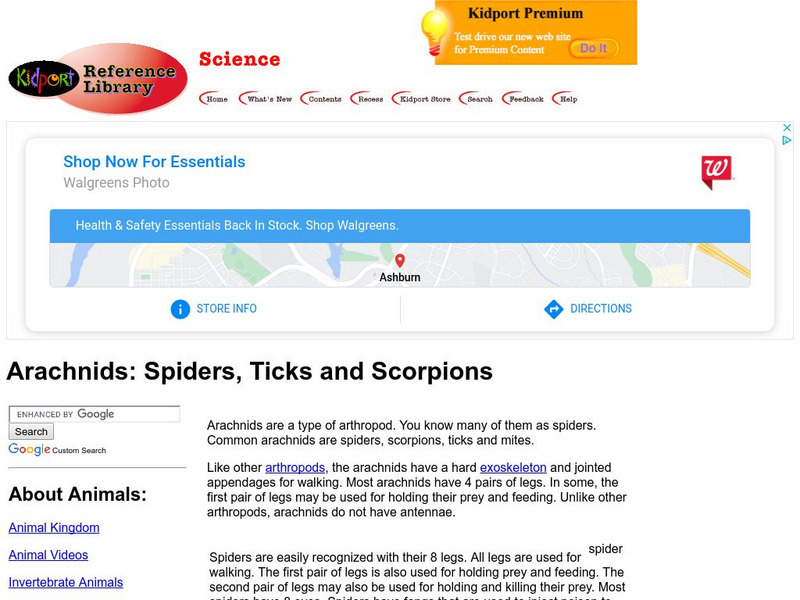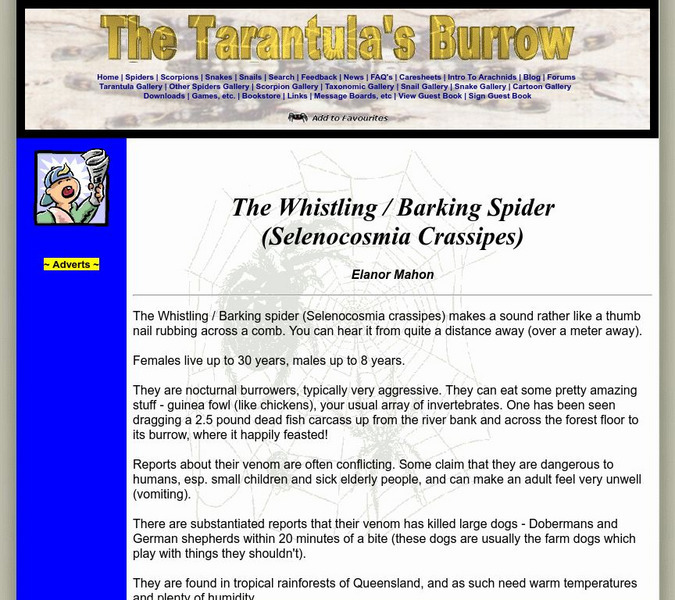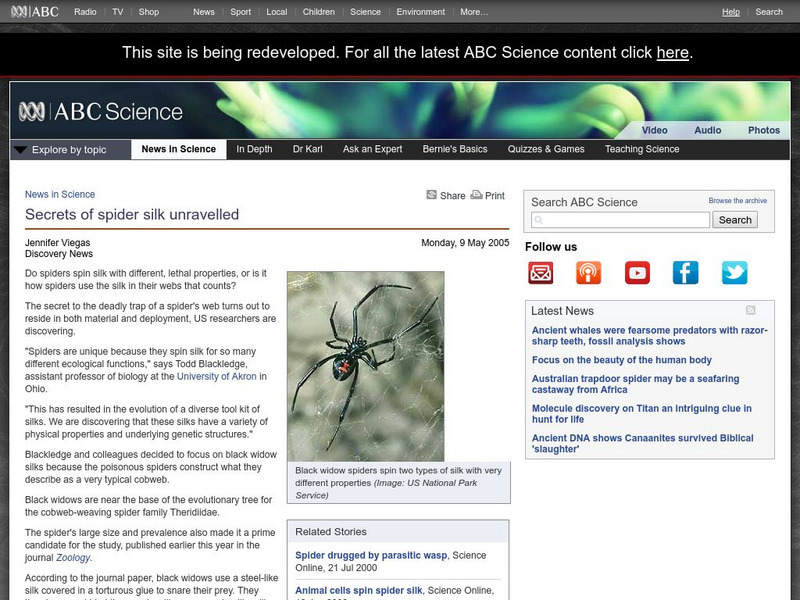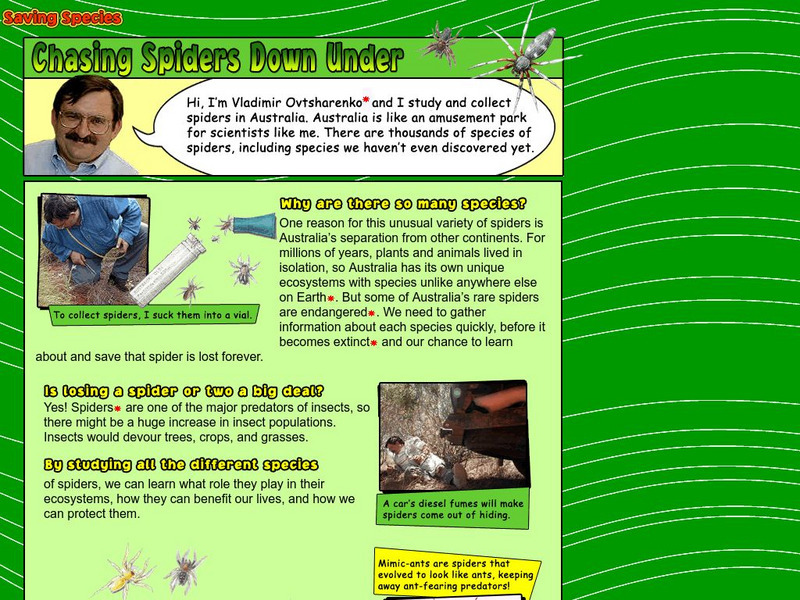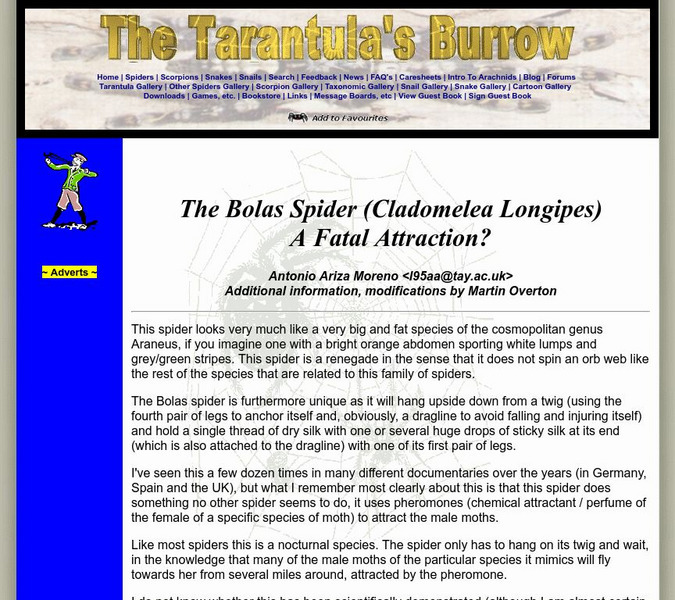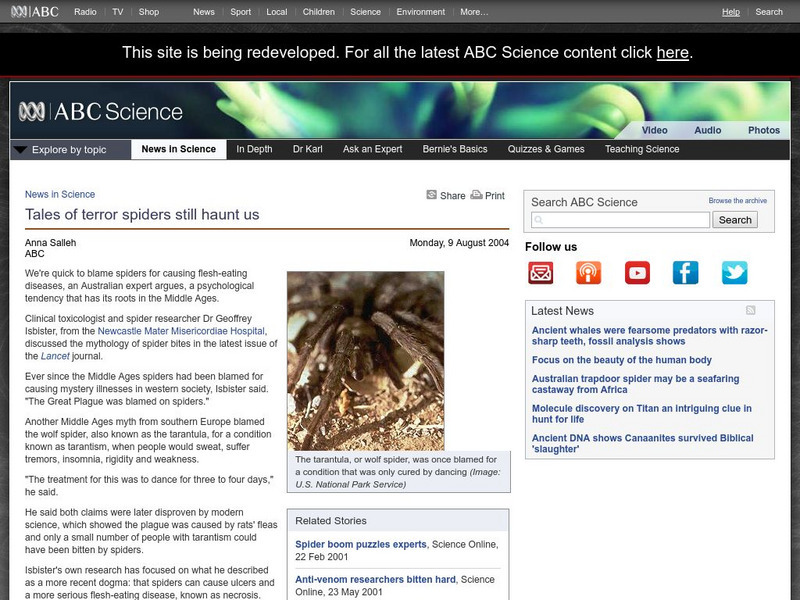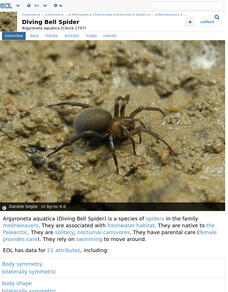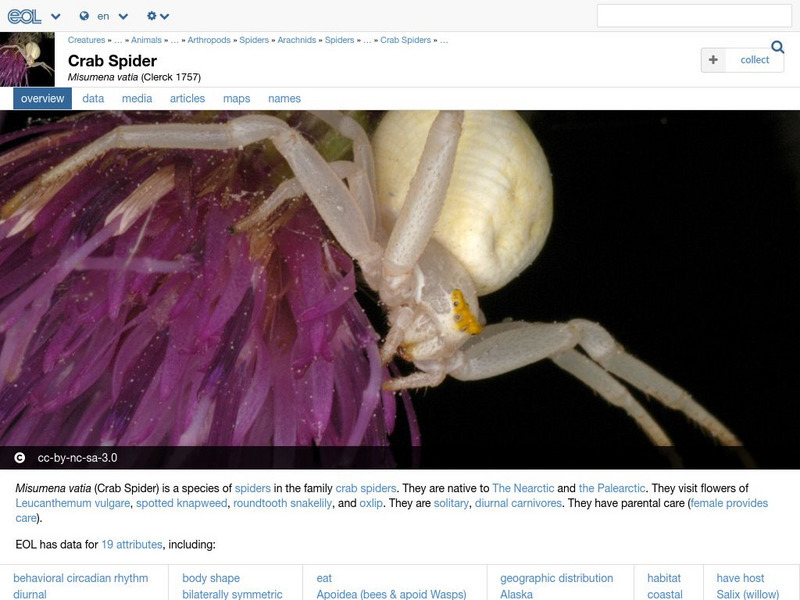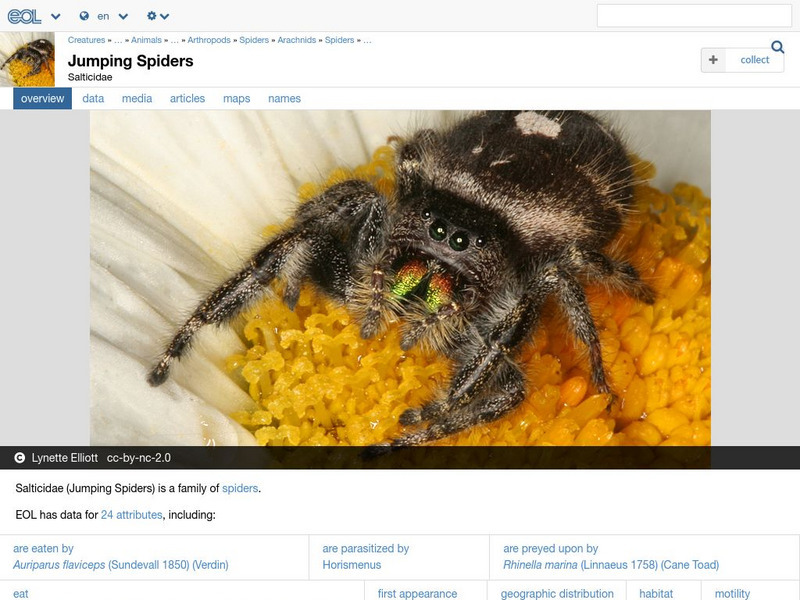Akron Children's Hospital
Akron Children's Hospital: Kidshealth: Hey! A Black Widow Spider Bit Me!
Read this article to learn about the black widow spider, one of six poisonous kinds of spiders in the United States.
Sheppard Software
Sheppard Software: Black Widow Spiders
This site gives an in-depth description of a black widow spider, including its behavior, appearance, and classification. The site includes photos and illustrations and an interactive quiz to test your understanding.
Kidport
Kid Port: Arachnids Spiders, Ticks, and Scorpions
KidPort.com provides simple information on arachnids, a type of arthropod that includes spiders, ticks, and scorpions.
University of Kentucky
University of Kentucky: Brown Recluse Spider
Webpage reference on the brown recluse spider which is more poisonous than a black widow and is more often found infesting homes and businesses.
Other
The Tarantula's Burrow: The Whistling / Barking Spider
A quick overview on the whistling spider which is found predominantly in Australia. Includes reports on their ability to make noise and the effects of their bites.
Other
Tb: Spiders Considered as Medically Important
This article investigates how humans vary in their vulnerability to venomous spiders and the importance of certain spiders to medical research. It investigates what factors contribute to this difference.
Australian Broadcasting Corporation
Australian Broadcasting Corporation: News in Science: Secrets of Spider Silk Unravelled
From ABC News in Science, Jennifer Viegas's article explores the various uses spiders employ for their silk. As a primary base, the article focuses on the Black Widow spider.
PBS
Pbs Teachers: Scientific American: Spiders! Spider Canyon
Investigate funnel-web spiders and their ability to adapt in order to survive. Make a set of spider trading cards that will include information about a spider's behavior, habitat and adaptations.
PBS
Pbs Teachers: Scientific American: Spiders! Spin, Spin, Spin
Investigate the use of computers to simulate spider behaviors to learn more about how and why spiders build webs. Build a model of a web to compare your eyesight and dexterity to a spider's, then compare the elasticity and strength of...
HotChalk
Hot Chalk: Lesson Plans Page: Parts of a Spider
This simple lesson plan is designed to introduce students to the structure of a spider and to classify spiders according to observable attributes and habitats.
American Museum of Natural History
American Museum of Natural History: O Logy: Chasing Spiders Down Under
Naturalist Vladimir Ovtsharenko explains why Australia is home to so many different species of spiders, why spiders are important, and why spiders should be protected.
Other
Arachnaphiliac: The Bola Spider a Fatal Attraction?
A site on the unique bola spider, which uses pheromones in order to catch its prey, male moths.
Teachers.net
Teachers.net: Why Spiders Don't Get Caught in the Web
In this lesson plan students listen to clues to determine that a mystery animal is a spider. After hearing the many clues, they will have learned many spider facts.
Australian Broadcasting Corporation
Australian Broadcasting Corporation: News in Science: Tales of Terror Spiders Still Haunt Us
From ABC News in Science, Anna Salleh's article explores the research of Dr Geoffrey Isbister and his work with facts and myths surrounding spider bites.
Other
Catch the Science Bug: Spider Search [Pdf]
Preserve a spider web then go on a search for the different kinds of spiders that live in your area. Do research to help you fill out the data collection sheet.
PBS
Pbs Teachers: Scientific American: Spiders! Song and Dance
Explore the diversity and prevalence of spiders around the world, and learn about jumping spiders, hunters that stalk their prey and pounce from a distance. Research the types and population density of spiders that live around you.
PBS
Pbs Teachers: Scientific American: Spiders! Amazon Tales
Explore several spider species and learn about their adaptations to the world around them. Design a new species of spider, with adaptations required to survive in a particular habitat.
Encyclopedia of Life
Encyclopedia of Life: Cellar Spiders
The Encyclopedia of Life presents this in-depth overview of Cellar Spiders (Pholcidae), including their habitats, size, conservation status, and much more. Images of this family and maps of its global distribution can also be found here.
Encyclopedia of Life
Encyclopedia of Life: Comb Footed Spiders
The Encyclopedia of Life presents this in-depth overview of Comb-footed Spiders (Theridiidae), including their habitats, size, conservation status, and much more. Images of this family and maps of its global distribution can also be...
Encyclopedia of Life
Encyclopedia of Life: Water Spider
The Encyclopedia of Life presents this in-depth overview of Water Spiders (Argyroneta aquatica), including their habitats, size, conservation status, and much more. Images of this species and maps of its global distribution can also be...
Encyclopedia of Life
Encyclopedia of Life: Flower Spider
The Encyclopedia of Life presents this in-depth overview of Flower Spiders (Misumena vatia), including their habitats, size, conservation status, and much more. Images of this species and maps of its global distribution can also be found...
Encyclopedia of Life
Encyclopedia of Life: Jumping Spiders
The Encyclopedia of Life presents this in-depth overview of Jumping Spiders (Salticidae), including their habitats, size, conservation status, and much more. Images of this family and maps of its global distribution can also be found here.
PBS
Pbs Teachers: Scientific American: Spider Web Making Stratagems
Investigate spiders in Panama that use UV-reflecting silk in their webs to attract their prey. Build a device that traps flying insects, experimenting with different light sources to choose the best lure.
Other popular searches
- Spiders Life Cycles
- Insects and Spiders
- Arachnids/ Spiders
- Black Widow Spiders
- Science Spiders
- Arachnids and Spiders
- Bats and Spiders
- Spiders and Science
- Spiders Crossword
- Arachnids Spiders
- Miss Spiders Tea Party
- Spiders and the Environment


